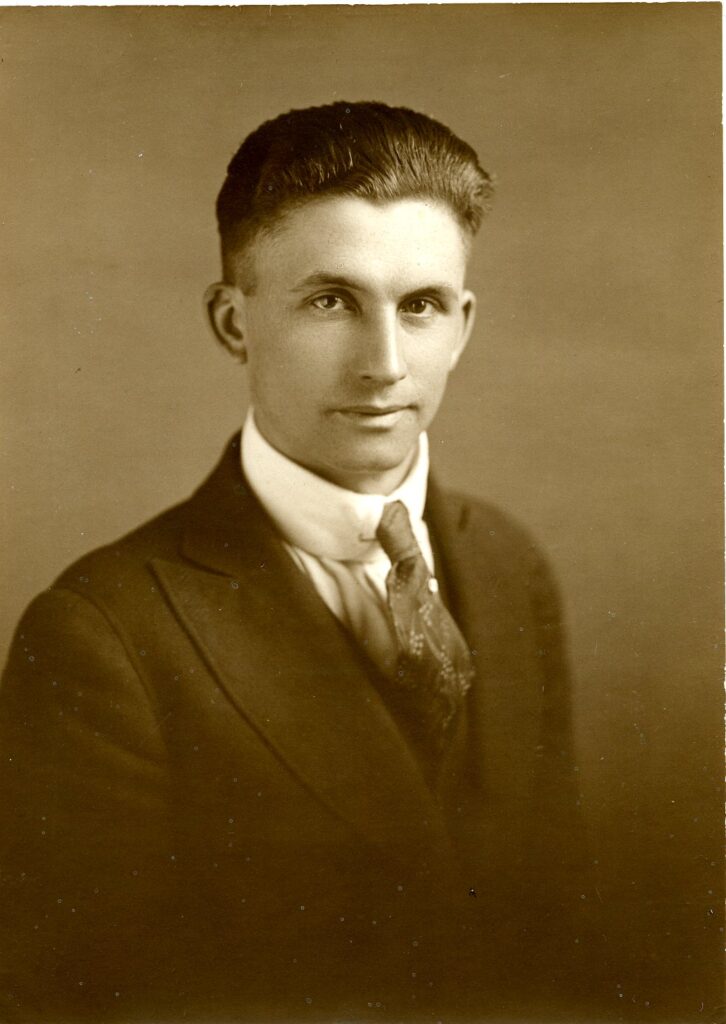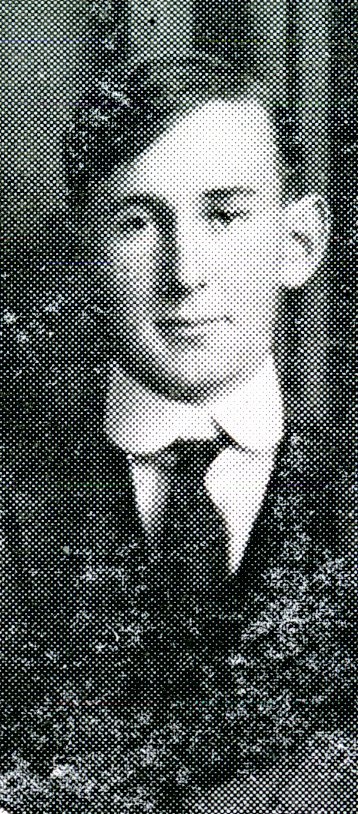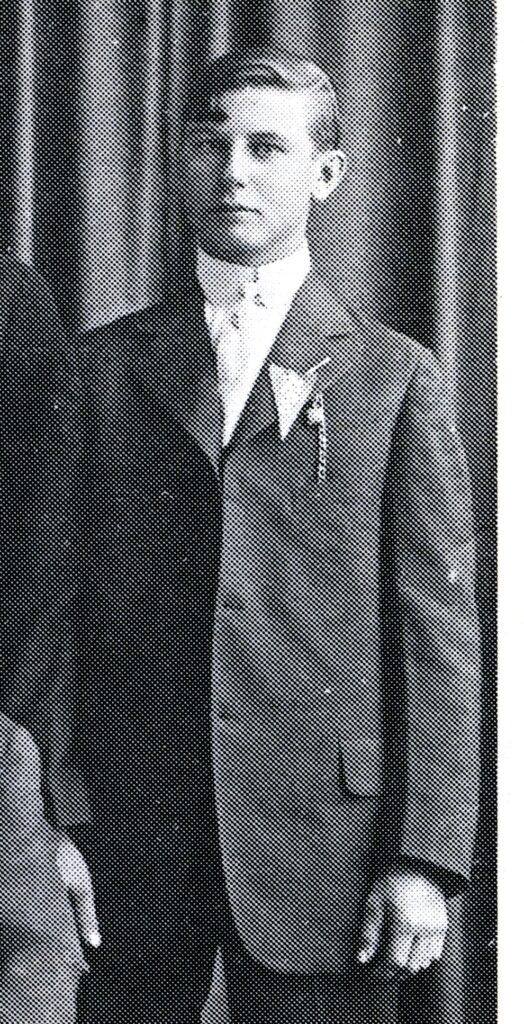When Dr. William Wolfgang was recently in town continuing his research into community theater and Charles Edwards, he mentioned that Charles was also a poet. We had none of his poems in our files, so Dr. Wolfgang offered to send some, one of which is printed below in commemoration of Armistice Day, which we now call Veterans Day.
On May 28, 1918 the American 1st Division led an assault on the town of Cantigny, France, making it the first divisional attack by the American Expeditionary Forces in World War I. When they forced the Germans to withdraw from Cantigny, the UP reported that the message to Headquarters was, “Hello! This is Cantigny!” The success of this first attack proved that American forces had the training, tools and leadership necessary to be a major threat to the Germans.
“A Threat and a Promise”
By Charles R. Edwards
“At headquarters officers waited anxiously for news of the American attack. After forty-five minutes a voice came over the field telephone: “Hello! This is Cantigny!” A British officer said: ‘It is both a threat and a promise.’”
Boys of our land, oh boys of our land,
Would to dear God we could have seen ye!
You crossed the May fields, the mist-hung grey fields,
Like flying film reels, you sped the Hun Heels;
And then you phoned back above a red track,
“Hello! This is Cantigny!”
Lads of our land, good lads of our land,
it is our proud day we call you kin!
For comes a starday—though near or far day—
Maybe in May day, yet gold if grey day—
When you will phone back, above a world’s track:
“Hello! This is Berlin!”
Boys of our land, clean sports of our land,
Oh, would to high God we would have seen ye!
“Hello! This is Cantigny!”
On Jun 1, 1918, the editor of the Hutchinson Gazette wrote: “We knew these Americans had ‘the goods’, they have done their first job with swift precision. Cantigny will one day be repeated a thousand-fold. That day the Kaiser’s crown will go into an allied museum.”
I could not discover that any Edwards County men fought at Cantigny. Chester Bidleman was stationed about 60 miles northwest of Cantigny. He was hauling water for the troops and wrote in his diary that he could hear bombing at Abbeville on May 27. On June 28, he had his first night maneuvers which he commented on, “I can’t say much in favor of it.”
Edwards County men did arrive in France shortly after. John Pixley wrote in a letter on June 20, 1918: “Our first greeting from France was rain, which continued on and off throughout the day but let up long enough for us to land and get to camp. On our trip to camp we had ample time to observe the effects of war in this country, and while I must say it is very beautiful, particularly the farming districts, yet the appearance of the people readily causes one to understand the burden they have been bearing for four years. Of course, the most conspicuous thing is the absence of able-bodied men, no one being on the streets except women, children, the aged and crippled.”
August Kurth wrote home from France on July 7, 1918: “German aviators fly over nearly every day. The French have brought down two of them near here, one just the other day, and (the other) about two months ago. We are in no danger here as we are at least 35 miles back of the lines…. You probably think because we are so near the scene of action we hear all the latest, but such is not the case, as the papers print one thing and the boys that come back from the front tell us different, but all believe the war will soon be over. I still have hopes of being home for Christmas dinner, but no one can tell.”
Not quite six months later, on the eleventh hour of the eleventh day of the eleventh month in 1918 the armistice ending World War I was signed just 25 miles southeast of Cantigny in Compiegne, France.
The next year, Armistice Day was set aside for national observance for the sacrifices of the soldiers in the United States, Great Britain, and France. Since then, it has become the day when we remember all the nation’s veterans and their sacrifices throughout the years to protect democracy and freedom from kings, dictators, and autocrats.



